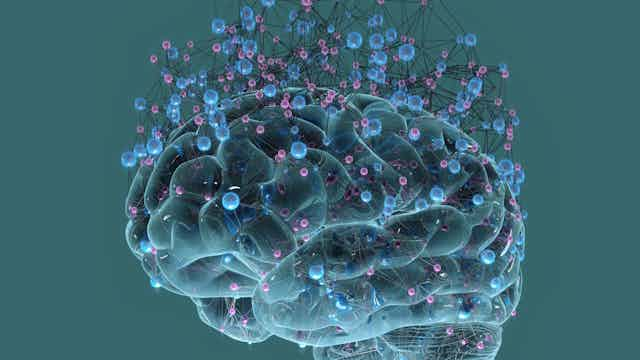For years, scientists have understood the vital importance of sleep for memory and cognitive function, but the exact mechanisms have remained something of a mystery. Now, a growing body of evidence suggests that during our slumber, the brain is hard at work running a sophisticated waste disposal system. This process, known as the glymphatic system, is thought to be most active when we’re asleep, flushing out the waste products and toxins that build up throughout the day. Researchers are now proposing a fascinating and urgent hypothesis: that a lack of quality sleep could hinder this cleaning process, leading to an accumulation of harmful toxins and potentially increasing a person’s risk of developing dementia. While much of the foundational research has been done in animal models, this emerging field raises the compelling possibility that a good night’s sleep might be a powerful, and even preventative, weapon against cognitive decline.
The Brain’s Unique Waste Disposal System
All living cells in the body produce waste as a byproduct of their metabolic processes. Outside of the brain, this cellular waste is effectively collected and carried away by the lymphatic system, a vast network of vessels that drains waste into the bloodstream. However, for a long time, scientists were baffled by how the brain, a highly active organ that produces a significant amount of waste, managed its own housekeeping, as it contains no lymphatic vessels. This long-standing mystery was finally solved about a dozen years ago with the discovery of the glymphatic system.
This newly identified system operates as the brain’s unique “plumbing” network, efficiently clearing toxins that would otherwise build up. The process begins with cerebrospinal fluid, a clear fluid that surrounds the brain and spinal cord. This fluid flows through channels that run alongside the brain’s blood vessels, effectively acting as the brain’s cleansing agent. It then enters the spaces between brain cells, where it collects waste products, and finally carries them out of the brain through large draining veins. This discovery was a groundbreaking step toward understanding how the brain maintains its health at a cellular level, but the most intriguing findings were yet to come.

The Crucial Role of Sleep
The most significant discovery about the glymphatic system came from research in mice, which revealed that this waste-clearing process was most active and efficient during sleep. Scientists found that during sleep, the spaces between the brain’s neurons expand significantly, allowing the cerebrospinal fluid to flow more freely and “flush out” waste products. One of the most critical waste products targeted by this system is amyloid beta (Aβ) protein. The accumulation of Aβ protein in the brain forms clumps known as plaques, which, along with tangles of tau protein, are a major hallmark of Alzheimer’s disease, the most prevalent form of dementia.
In studies of both humans and mice, researchers have observed a fascinating daily cycle: levels of Aβ detected in the cerebrospinal fluid increase throughout the day when a person is awake, and then fall rapidly during sleep. This pattern strongly suggests that sleep is a critical time for the brain’s cleanup crew to get to work. However, this emerging field is not without its debates. A more recent mouse study seemed to show the opposite, suggesting the glymphatic system was more active during the day. This has led to a scientific debate about the exact timing and mechanisms of the system’s function, highlighting the fact that we still have a long way to go before we can fully understand how this process works in both humans and animals.
Disrupted Sleep: A Risk Factor for a Toxic Buildup
Given the apparent link between sleep and the brain’s cleansing system, researchers are now exploring what long-term sleep disruption might mean for our brain health. A number of common sleep disorders have already been linked to an increased risk of dementia, and this new research may help to explain why. Sleep apnea, for instance, is a widespread disorder where a person’s breathing repeatedly stops and starts during sleep. This leads to chronic sleep deprivation and reduced oxygen levels in the blood, both of which are thought to contribute to the accumulation of toxins in the brain.

The connection is so strong that researchers have found that after people are successfully treated for sleep apnea, a greater amount of Aβ is cleared from their brains. This provides a powerful suggestion that treating a sleep disorder may be a viable way to improve the brain’s waste removal process. Similarly, insomnia, defined as difficulty falling or staying asleep over a long period, has also been linked to an increased risk of dementia. While more research is needed, it is plausible that improving sleep quality for those with insomnia could also help their brains clear toxins more effectively.
Where Does This Leave Us?
This is still a nascent and developing area of research, and we don’t yet have all the answers. While these studies collectively suggest that getting enough good-quality sleep is critical for maintaining a healthy brain and clearing out toxins, we don’t know for certain if treating a sleep disorder can directly reduce the risk of dementia. Researchers are actively working to fill in these gaps. For example, some studies are now investigating the concentration of Aβ and tau proteins in the blood of people with sleep apnea to better understand how treatment affects the brain’s cleaning processes.
Other research is exploring the use of new drugs, such as orexin receptor antagonists for insomnia, to see if they can help improve the clearance of Aβ from the brain. These studies represent a promising new frontier in dementia prevention research. While we wait for more definitive answers, the current evidence is a powerful reminder that prioritizing sleep is one of the most effective and proactive steps we can take for our long-term brain health.




